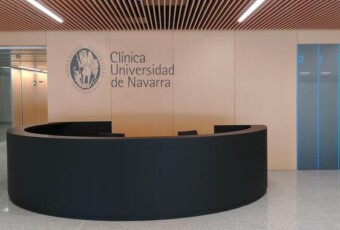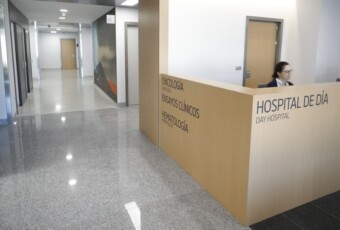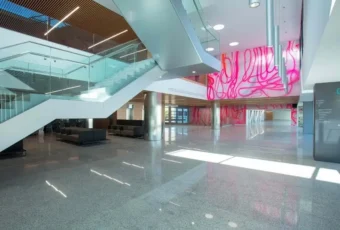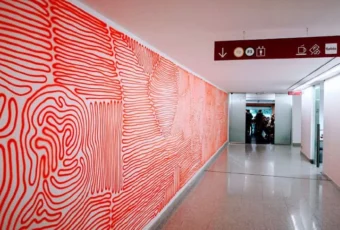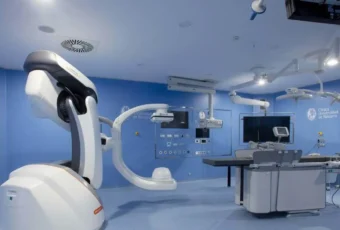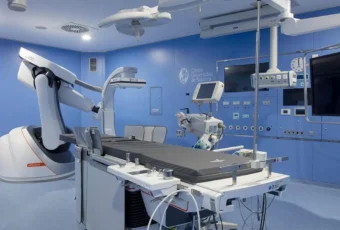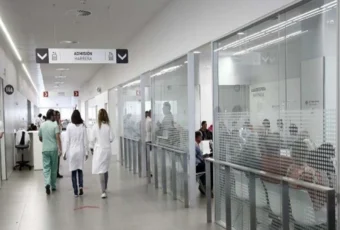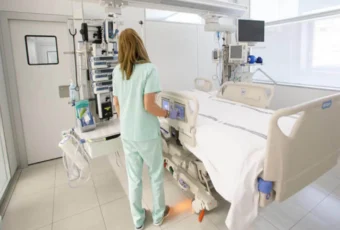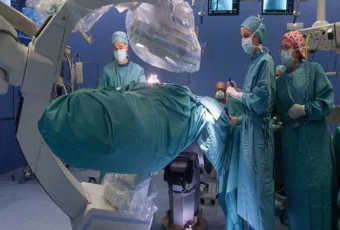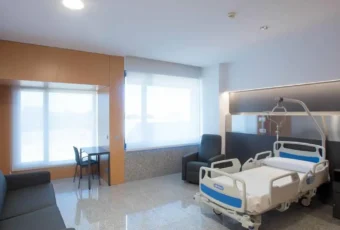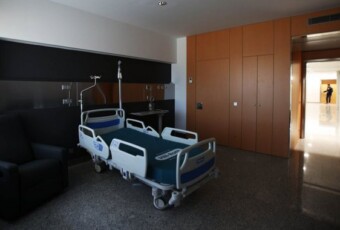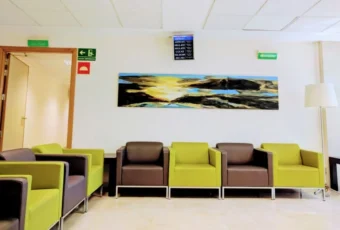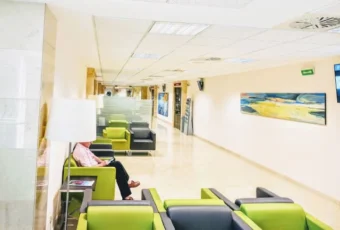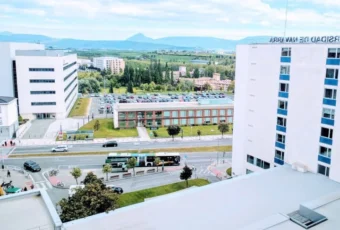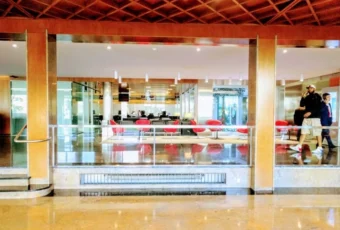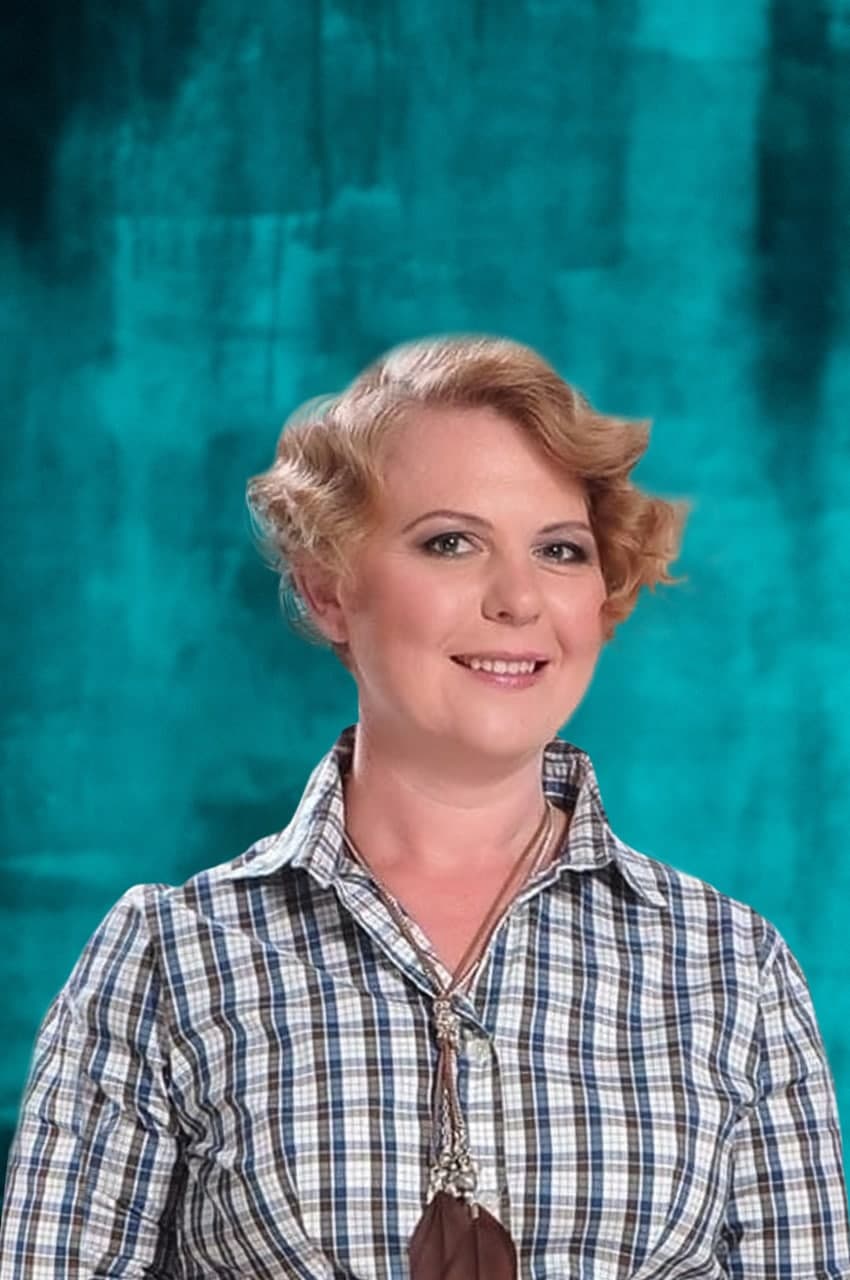






Navarra University Hospital is one of the leading private medical centers in Spain and Europe. The institution was founded in 1962 and is famous for its high level of medical care, as well as advanced technologies.
Navarra University Hospital is a leader in the treatment of sarcoma. The leading areas of the hospital are oncology, surgery, cardiology, neurology, transplantology, and others.
The hospital is accredited by the international organization JCI and occupies a leading position in the list of the best hospitals in the world according to Newsweek.
The main feature of Navarra Hospital is the presence of research centers equipped with advanced technologies. Carrying out vigorous scientific activity allows scientists to develop new, highly effective methods of treating cancer (sarcomas, leukemia, melanoma), heart diseases (arrhythmias, valvular defects), nervous system disorders (Parkinson's disease, cerebral palsy, epilepsy, etc), and other pathologies. This contributes to an increase in the success rates of the treatment of the most complex and intractable pathologies, including multiple sclerosis, cardiomyopathy, and acute lymphoblastic leukemia.
Main Advantages of Navarra Hospital
The medical center is one of the leaders in medical tourism due to its impeccable reputation, innovative treatment methods, and affordable prices.
Among the main advantages of the medical center are:
- Clinica Universidad de Navarra is a recognized leader in the field of medical care and complex surgical operations. Thanks to the work of qualified specialists and modern equipment, advanced methods of diagnostics and therapy are used in the center. The best doctors work on the basis of the medical center, including professors, doctors of sciences and with international recognition.
- Integrative approach to treatment. The hospital offers an individual treatment program for each patient, taking into account its characteristics, needs, and wishes. An integrative approach takes into account various factors that affect the health and well-being of the patient, such as stress, nutrition, lifestyle, and others.
- Research and innovation. Through close collaboration with Navarra University, the clinic is actively involved in scientific research and clinical trials of new treatments. The best doctors in Spain implement the latest medical developments and technologies in order to provide a high level of healthcare and achieve the best results in the treatment of their patients.
- International recognition and accreditation. Navarra Hospital has received recognition not only at the national level but also in the international medical community. JCI accreditation confirms the high standards of quality and safety of medical care.
Sarcoma Treatment at Navarra Medical Center
Navarra University Hospital is the leading center in Spain for the treatment of sarcoma. Over the past three decades, the clinic's doctors have successfully treated more than 1,500 patients, mostly children. The effectiveness of the treatment of osteosarcoma, the most common type of this disease, reaches 76%, while for Ewing's sarcoma, it is 67%.
According to the latest data, the Clinica Universidad de Navarra has demonstrated outstanding results: in 98% of patients who underwent surgery for osteosarcoma, doctors were able to save the affected limb.
The unique Canadell surgical technique was developed at Navarra University Hospital. This is a method of treating childhood bone sarcoma, in which the patient's limb is preserved. The Canadell technique avoids limb amputation and preserves its function, as well as improves the quality of life of patients with childhood bone sarcoma.
Department of Oncohematology at Navarra Clinic
The leading method for the treatment of malignant blood diseases at the Clinica Universidad de Navarra is chemotherapy using the latest generation of antitumor agents.
To restore the process of hematopoiesis, specialists perform a bone marrow transplantation. Transplantation is carried out from a patient (autologous) or from a donor (allogeneic).
At the Clinica Universidad de Navarra, advanced vaccines are used, the purpose of which is to destroy abnormal cells and suppress their further development.
In the treatment of blood cancer, Spanish specialists achieve high results using a combination of retinoic acid derivatives, new antibodies, and chemotherapy.
Department of Neurosurgery of Clinica Universidad de Navarra
Neurosurgery at the University Hospital of Navarra includes the treatment of various diseases and injuries of the nervous system, including tumors of the brain and spinal cord, vascular anomalies, hydrocephalus, epilepsy, and pain syndromes.
The department employs experienced and qualified neurosurgeons specializing in the treatment of pituitary adenoma, glioblastoma, meningioma, CNS lymphoma, and other brain neoplasms.
In surgery of the brain, spine, removal of tumors, and treatment of epilepsy, specialists widely use minimally invasive methods and navigation systems. These approaches allow operations to be performed using small incisions, thereby reducing the risk of complications. Thanks to the use of neuronavigation, doctors can perform operations with high precision, avoiding damage to healthy tissues.
Also in the Clinica Universidad de Navarra, deep brain stimulation (DBS) is performed. This surgical treatment involves implanting a special device that sends electrical impulses to a specific part of the brain. DBS is actively used to treat neurological disorders such as Parkinson's disease, idiopathic tremor, obsessive-compulsive disorder, epilepsy, depression, and others.
The organization of treatment at Navarra University Hospital with the support of Experts Medical provides patients with security, confidence, and support during the trip. The medical coordinator of the company provides assistance in organizing the trip, including the preparation of all necessary documents and visas.
Cardiosurgery
Neurosurgery
Obstetrics & gynecology
Oncology
Ophtalmology
Orthopedy
Surgery
Urology, nephrology
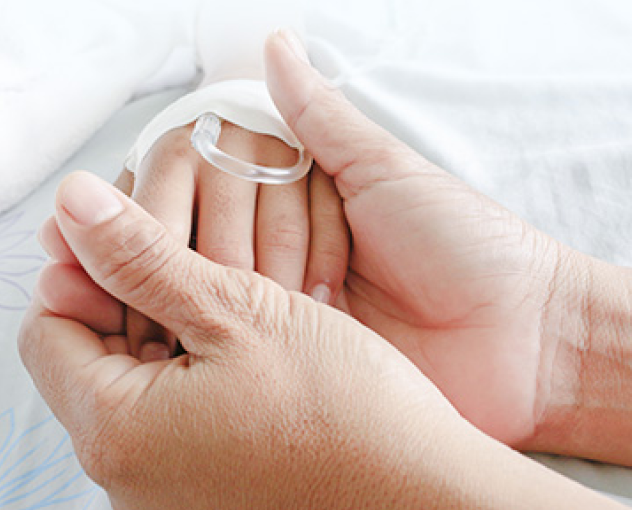
| Oncologist's consultation | $555 | Enquire price |
| Colonoscopy | Enquire price | |
| CT scan of the chest, abdomen and pelvic organs | Enquire price | |
| PET-CT with Gallium 68 (PSMA) | Enquire price | |
| MRI of the abdomen | Enquire price | |
| Dermatologist's consultation | Enquire price | |
| PET-CT | $2334 | Enquire price |
| brain MRI | Enquire price | |
| Laryngoscopy | Enquire price | |
| Lumbar puncture | Enquire price | |
| Mammography | Enquire price | |
| Lab tests | Enquire price |
| Holmium laser enucleation of the prostate | $11118 | Enquire price |
| Craniotomy | $20012- $23348 | Enquire price |
| Vaporization of the prostate (Green laser) | $8894 | Enquire price |
| Prostatectomy with da Vinci robot | $25572 | Enquire price |
| Surgery for sarcoma | $30019- $55591 | Enquire price |
| Hemorrhoidectomy | Enquire price |
| Deep Brain Stimulation (DBS) | Enquire price | |
| Minimally invasive surgery and neuronavigation | Enquire price |
| Chemotherapy | Enquire price | |
| Sarcoma treatment | Enquire price | |
| Treatment of brain cancer | Enquire price | |
| Breast Cancer Treatment | Enquire price | |
| Thyroid Cancer Treatment | Enquire price |
| Leukemia treatment | Enquire price | |
| Myeloma treatment | Enquire price |
| Surgery for atrial septal defect | Enquire price | |
| Angioplasty of the heart vessels | Enquire price | |
| Surgery for acquired heart defects | Enquire price | |
| Open heart surgery | Enquire price | |
| Heart valve repair | Enquire price |
Dr. Luis Ariznavarreta was the lead investigator in 7 clinical trials involving patients. He has received 15 grants and 9 awards for his work.
Luis Ariznavarreta is the author of 140 articles in international and national journals.
More than 100 publications in international and national journals.
Bachelor of Medicine and Surgery from the University of Zaragoza. Doctorate from the Faculty of Medicine of the University of Navarra. Allergist at the University of Navarra Clinic.
He specializes in minimally invasive radionavigation operations for parathyroid adenoma.
Check the cost of treatment and get 20 000 € from international foundation
Get financial help up to 20 000 € for your child treatment
Medical consultant
Turkish oncologist will provide an individual chemotherapy program.
Israeli oncologist will provide an individual chemotherapy program.
Spanish oncologist will provide an individual chemotherapy program.
German oncologist will prepare an individual chemotherapy program.
Polish oncologist will prepare an individual chemotherapy program.
Italian oncologist will prepare an individual chemotherapy program.
Turkish radiologist will prepare a personalized radiation therapy program
Israeli radiologist will draw up an individual radiation therapy program.
German radiologist will draw up an individual radiation therapy program.
Spanish radiologist will draw up an individual radiation therapy program.
Polish radiologist will prepare an individual radiation therapy program.
Italian radiologist will draw up an individual radiation therapy program.
Turkish plastic surgeon will make an individual operation program.
German plastic surgeon will make an individual operation program.
Israeli plastic surgeon will make an individual operation program.
Italian plastic surgeon will make an individual operation program.
Polish plastic surgeon will make an individual operation program.
Spanish plastic surgeon will make an individual operation program.
Turkish orthopedic surgeon will make an individual operation program.
Israeli orthopedic surgeon will make an individual operation program.
German orthopedic surgeon will make an individual operation program.
Italian orthopedic surgeon will make an individual operation program.
Lithuanian orthopedic surgeon will make an individual operation program.
Polish orthopedic surgeon will make an individual operation program.
Ukrainian orthopedic surgeon will make an individual operation program.
Spanish orthopedic surgeon will make an individual operation program.
Turkish neurosurgeon will study the medical situation and give recommendations for treatment.
Israeli neurosurgeon will study the medical situation and give recommendations for treatment.
German neurosurgeon will study the medical situation and give recommendations for treatment.
Italian neurosurgeon will study the medical situation and give recommendations for treatment.
Lithuanian neurosurgeon will study the medical situation and give recommendations for treatment.
Spanish neurosurgeon will study the medical situation and give recommendations for treatment.
Ukrainian neurosurgeon will study the medical situation and give recommendations for treatment.
Turksih doctor will answer your questions
Israeli doctor will answer your questions
German doctor will answer your questions
Italian doctor will answer your questions
Polish doctor will answer your questions
Ukrainian doctor will answer your questions
Spanish doctor will answer your questions
Israeli orthopedic surgeon prepare an individual surgical plan and recomendations
Turkish orthopedic surgeon prepare an individual surgical plan and recomendations
German orthopedic surgeon prepare an individual surgical plan and recomendations
Italian orthopedic surgeon prepare an individual surgical plan and recomendations
Lithuanian orthopedic surgeon prepare an individual surgical plan and recomendations
Polish orthopedic surgeon prepare an individual surgical plan and recomendations
Spanish orthopedic surgeon prepare an individual surgical plan and recomendations
Lithuanian doctor will answer your questions
After examining your situation, doctor will make an individual price offer.
Doctor-consultant will answer all your questions about the cost of treatment, the choice of a doctor and fully organize treatment abroad.

we will contact you within 15 minutes
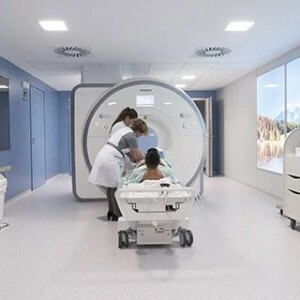 Clinica Universidad de Navarra presents a wide range of modern technologies for the treatment of all oncological diseases.
Clinica Universidad de Navarra presents a wide range of modern technologies for the treatment of all oncological diseases.
The following procedures are available here:
- Accelerated partial irradiation with brachytherapy. This is a variant of contact radiation therapy. During the procedure, the doctor places a radioactive capsule inside the patient’s body to act on cancerous foci. The main advantage is the ability to reduce the duration of the course of radiation therapy from 25 to 5 days. It is used for cancer of the bronchi, breast, esophagus, rectum, cervix, and prostate.
- Videothoracoscopic surgery. It is the removal of tumors in the chest organs through a small incision between the ribs using an endoscopic video camera. The technology allows for minimizing soft tissue trauma and shortening the rehabilitation period.
- Proton therapy. This is an advanced type of radiation therapy using a proton beam. The procedure is performed using the Hitachi synchrotron and a powerful device that is installed only in the world’s leading centers. The system has the ability to adapt to human breathing. Unlike traditional radiation therapy, proton radiation therapy has the following advantages:
- higher accuracy;
- minimum number of side effects;
- reduced risk of relapse;
- higher quality of life for patients.
Proton therapy is especially indicated for the treatment of tumors located near critical organs. It is recommended for children. Navarra Hospital is one of the few in Europe where proton therapy is available.
- Immunotherapy and targeted therapy. Drugs that are able to find and attack cancer cells are used. Before therapy, patients undergo a molecular genetic study of the tumor. Based on the results of the analysis, oncologists select the most suitable drug. Here, advanced medicines are available that are not available in the countries of Eastern Europe and Central Asia.
- Cancer vaccines. A variant of biotherapy based on the creation of personalized drugs. To create a vaccine, they take samples of the patient’s cells and change them in the laboratory. After being introduced into the body, they activate the patient’s immunity to fight the tumor. Clínica Universidad de Navarra is the only hospital in Spain that produces idiotypic (personalized) vaccines to fight lymphoma.
- Therapy with CAR-T cells. It is an advanced technique based on the use of T-lymphocytes of the patient. These are cells that are capable of fighting cancer. Chimeric antigens, which are then injected into the body, are introduced in them. The main goal of CAR-T therapy is to detect and destroy cancerous foci.
- Radioisotope treatment of thyroid carcinoma. Radioactive iodine 131 is used to destroy metastases.
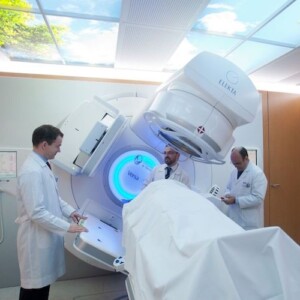 Bone marrow transplantation. Stem cell transplantation from the patient (autologous) and from a donor (allogeneic) is available.
Bone marrow transplantation. Stem cell transplantation from the patient (autologous) and from a donor (allogeneic) is available.
Clinica Universidad de Navarra is equipped with modern radiotherapy units. Among them are Elekta linear accelerator, two Siemens Mevatron Primus devices, Siemens Oncor, and LINAC systems.
These modern technologies give the possibility:
- to accurately dose the radiation load in the center of the tumor;
- to minimize damage to healthy tissues;
- to reduce the duration of the therapy session;
- to significantly reduce exposure time;
- to minimize the occurrence of adverse reactions.
The Cardiology Center Clinica Universidad de Navarra has everything you need to treat all pathologies of the cardiovascular system:
- Modern medical equipment, including echocardiographs, MRI systems, digital angiographs, and latest-generation optical coherence tomographs.
- Experienced cardiologists and cardiac surgeons, among whom there are authors of unique surgical technologies.
- Hybrid operating rooms, which simultaneously perform diagnostics and minimally invasive treatment of several pathologies.
The Department of Cardiology at Navarra Hospital is recognized as a reference center for the diagnosis and treatment of coronary arteries.
 Foreign patients come to Clinica Universidad de Navarra for treatment:
Foreign patients come to Clinica Universidad de Navarra for treatment:
- coronary heart disease (CHD);
- heart rhythm disturbances;
- valve pathologies;
- myocardial infarction;
- angina pectoris;
- myocardiopathy;
- pericarditis.
The Department of Cardiac Surgery of Navarra Hospital is a pioneer in the implementation of complex procedures and innovative techniques.
The following are available here:
- Cardiac surgery using HeartPort technology. It allows access to the heart through small side incisions. Due to this, there are no large scars and the risks of blood loss are minimized, patients recover quickly.
- Implantation of an internal defibrillator. Clinica Universidad de Navarra has a defibrillator remote control system. With its help, the cardiologist receives daily accurate information about the patient’s condition. In the event of a sudden cardiac arrest in patients at risk of arrhythmia, the system can automatically start it.
- Coronary artery bypass by catheter method. The procedure is carried out with coronary artery disease and acute myocardial infarction.
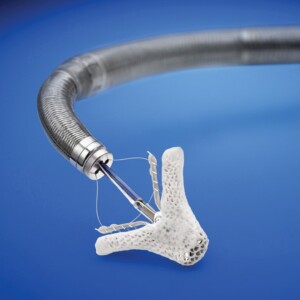 Aortic valve replacement by TAVI. The intervention is carried out by a catheter method under X-ray control through a puncture of the femoral artery.
Aortic valve replacement by TAVI. The intervention is carried out by a catheter method under X-ray control through a puncture of the femoral artery.- Radiofrequency ablation. It is performed in a catheter way through a puncture of a vein in the groin for the treatment of arrhythmias.
- Cryoablation. Minimally invasive endovascular intervention to eliminate arrhythmias using a liquid nitrogen balloon.
- Catheter angioplasty for the treatment of angina pectoris. A small balloon is used to expand the artery. It is inflated to the desired size and the stent is inserted. The method allows to maintain blood flow in a normal state for a long time.
- Percutaneous coronary angioplasty. This is an effective way to treat coronary artery disease. Manipulations are performed through a puncture of the radial or femoral artery.
Clinica Universidad de Navarra is the first clinic in Europe where a pacemaker was installed for the treatment of severe heart failure by catheter method without opening the chest.
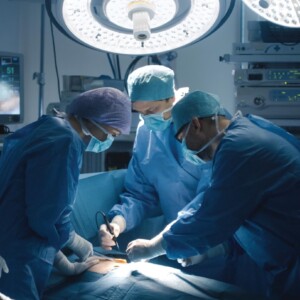 Clinica Universidad de Navarra is recognized as the most technologically advanced hospital in Spain. There are 16 operating rooms equipped here, in which complex surgical interventions are performed.
Clinica Universidad de Navarra is recognized as the most technologically advanced hospital in Spain. There are 16 operating rooms equipped here, in which complex surgical interventions are performed.
Surgeons at Navarra Hospital specialize in low-traumatic surgeries. They provide for maximum tissue preservation and rapid patient recovery.
Clinica Universidad de Navarra performs operations that are not always available in the patient’s home country. Among them are:
- Installation of cochlear and stem implants in otorhinolaryngology.
- Removal of a breast tumor with simultaneous breast reconstruction.
- Deep brain stimulation (DBS) for the treatment of epilepsy and Parkinson’s disease. The procedure is aimed at suppressing the activity of brain regions responsible for the onset of symptoms of diseases.
- Mohs Operation (MOHS). The microscopic technology used in the treatment of skin cancer consists of the layer-by-layer removal of the affected areas. The procedure provides the highest level of cure compared to traditional methods and is recognized as the “gold standard” in myeloma therapy.
- Whipple operation. This is a complex intervention performed by experienced specialists in the treatment of pancreatic cancer. This involves removing the head of the pancreas along with the bile duct, duodenum, and sometimes part of the stomach. According to Navarra Hospital, the mortality rate in the surgical process is almost zero.
- Reconstructive plastic microsurgery. It includes the reconstruction of blood vessels, nerves, skin areas, and the restoration of the integrity of the body.
- Robotic operations in various medical areas, including:
- obstructive sleep apnea syndrome;
- oncology – cancer of the throat, thyroid, pancreas, prostate, uterus, and ovaries;
- cardio-thoracic surgery;
- neurosurgery;
- pediatric surgery.
 Clinica Universidad de Navarra was certified by the European Council in 2019. It is recognized as a leading Center of Excellence in Bariatric Surgery.
Clinica Universidad de Navarra was certified by the European Council in 2019. It is recognized as a leading Center of Excellence in Bariatric Surgery.
Obesity treatment is carried out by specialists of the hospital in accordance with international protocols. Doctors use an integrated approach to each patient and apply advanced safe techniques. The therapy plan is developed by an interdisciplinary team of specialists, taking into account concomitant diseases, for example, hormonal disorders, cardiovascular diseases, and gastrointestinal pathologies.
Clinica Universidad de Navarra uses Bod-Pod diagnostic technology and indirect calorimetry to estimate calorie expenditure. Bod-Pod is recognized as the “gold standard” for assessing body fat. It allows you to accurately determine the mass of fat and the percentage of mass without lipids, taking into account water, internal organs, and bones. The technique allows to draw up a plan for adaptive therapy of patients.
Diagnosis also includes cardiac tests, polysomnography, abdominal ultrasound, and bone densitometry.
Specialists of Clinica Universidad de Navarra have developed several obesity treatment programs for different groups:
- Patients without complications.
- With cardiovascular risk factors.
- With accompanying complications.
Surgical treatment in Navarra Hospital is performed by specialists who are recognized as experts in the field of bariatric surgery. The advantage is given to endoscopic techniques, in which manipulations are carried out through small punctures. This avoids postoperative complications and shortens the rehabilitation period.
The surgeons of Navarra Hospital have achieved high results in minimally invasive interventions:
- Vertical sleeve gastroplasty. It provides for the removal of up to 75% of the stomach along the vertical part while maintaining its function. The doctor shapes the new stomach into a narrow sleeve with a diameter of 2.5 cm. This helps to reduce food intake and leads to weight loss.
- Transoral plastic surgery. Reduction of the wide part of the stomach.
- Installation of an intragastric balloon. During the intervention, the surgeon installs a special balloon in the patient’s stomach, which, after inflating, occupies most of the stomach. This contributes to the feeling of satiety after eating a small amount of food. The balloon can be in the stomach from six months to nine months.
- Gastric bypass. The doctor connects the upper section to the small intestine while bypassing the upper part of the stomach. Due to this, it is reduced in volume up to 50 grams, which helps to reduce food intake.
- Tubular gastrectomy. This is the complete removal of the stomach with the imposition of an anastomosis that connects the esophagus and intestines.
At Clínica Universidad de Navarra, aesthetic surgery procedures for obese patients are in high demand.
Surgeons perform:
- abdominoplasty is the removal of excess skin and fat from the middle and lower abdomen;
- liposuction is the removal of accumulations of fat from different parts of the body;
- lifting of arms and thighs is aimed at reducing skin laxity.
The operations in the field of metabolic surgery are also performed in the hospital. They allow 80% of patients with type 2 diabetes to lose weight and stop taking medication. To do this, surgeons perform a mini-gastric bypass, which allows food to enter the intestine without passing through the duodenum. According to the clinic, in 90% of patients after surgery, the level of glucose is normalized in the blood.
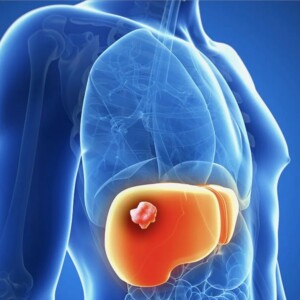 The specialists of Clinica Universidad de Navarra effectively treat all stages of liver cancer. This is the only hospital in Spain that effectively treats patients in the last stages of inoperable cancer.
The specialists of Clinica Universidad de Navarra effectively treat all stages of liver cancer. This is the only hospital in Spain that effectively treats patients in the last stages of inoperable cancer.
A unique technology, radioembolization with Yttrium-90 microspheres (SIRT-therapy), has been developed here. This is a type of brachytherapy, local radiation therapy using microspheres (up to 0.5 mm). During the procedure, the doctor injects microspheres with particles of Yttrium-90 into the hepatic artery through a catheter, aimed at fighting cancer cells.
Yttrium-90 is a radioactive substance that penetrates to a depth of 2.5 mm and decays within 3 days. This allows to act exclusively on malignant cells, without affecting healthy tissues.
Radioembolization for the treatment of liver cancer is more effective than external beam therapy. The doctor has the ability to increase the radiation power by 30 times. It is a minimally invasive procedure that does not require hospitalization and is easily tolerated by patients.
Radioembolization is especially indicated for patients who:
- do not respond to chemotherapy, targeted and immune therapy;
- do not have the opportunity to perform surgery to remove the tumor and liver transplant;
- are over 75 years old.
According to the data of Navarra Hospital, thanks to SIRT therapy in combination with chemotherapy, oncologists manage to stop the development of the tumor and reduce the likelihood of metastases in 90% of patients.
Navarra Hospital is one of five clinics in the world where liver transplantation is performed laparoscopically through small incisions in the abdominal cavity. Due to this, the risk of infection is minimized, blood loss is reduced, and the patient’s recovery takes place in a short period.
The Department of Hepatology of Navarra Hospital received a prestigious award from the Monitor Reputación Sanitaria in 2022.
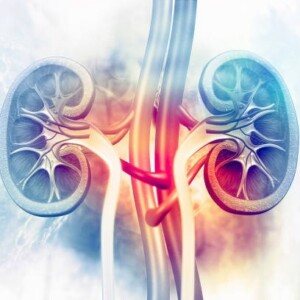 The Urology Center is accredited by the European Council of Urology (EBU). It offers advanced diagnostic and therapeutic procedures.
The Urology Center is accredited by the European Council of Urology (EBU). It offers advanced diagnostic and therapeutic procedures.
Foreign patients come for treatment:
- urolithiasis;
- cancer of the genitourinary system;
- urinary incontinence;
- erectile dysfunction;
- kidney transplant.
Doctors use the LITOTRICIA system to crush kidney stones. This is an extracorporeal lithotripsy unit of maximum precision with the latest generation of shock waves. With its help, doctors also carry out 90% of the calculations of operations on the organs of the urinary system.
For surgical treatment of the pelvic organs, the Da Vinci robotic unit is mainly used. Robotic surgery minimizes the risk of postoperative complications and genitourinary dysfunction.
On the basis of the department, kidney transplantation is performed. For foreign patients, it is carried out from donors of the 1st or 2nd degree of kinship (parents, children, brothers, sisters). The operation is performed laparoscopically with minimal tissue trauma.
Clinica Universidad de Navarra has the first specialized Prostate Center in Spain. It is the only clinic in Spain and one of the few in the world that offers a wide range of advanced diagnostic procedures. A personalized treatment plan is drawn up for the patient, taking into account the characteristics of the course of the disease.
The following procedures are available:
- Minimally invasive methods of treatment of prostate adenoma:
- photovaporization with green laser;
- holmium laser enucleation;
- embolization of the prostate.
- Focal therapy for localized prostate cancer:
- high-intensity focused ultrasound (HIFU);
- irreversible electroporation;
- high-dose brachytherapy.
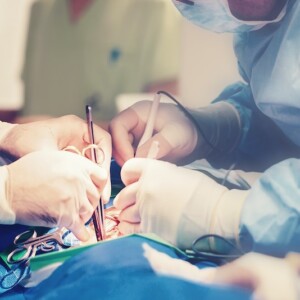 Surgical treatment of prostate cancer:
Surgical treatment of prostate cancer:
- transurethral resection of the tumor;
- laparoscopic intervention;
- robotic-assisted operation.
According to the data of the clinic, the 10-year survival rate after treatment at Navarra Hospital for prostate cancer is close to 100%.
For early detection of the disease, check-ups have been developed for men over 50 years of age.
Physicians-coordinators of Experts Medical will quickly and reliably help you choose an attending physician and arrange a consultation with him and a trip for treatment to the University Navarra Hospital.

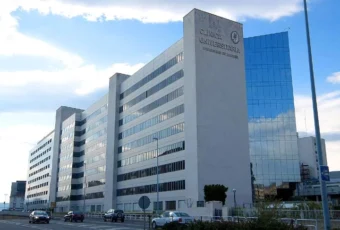
 show All photos
show All photos
